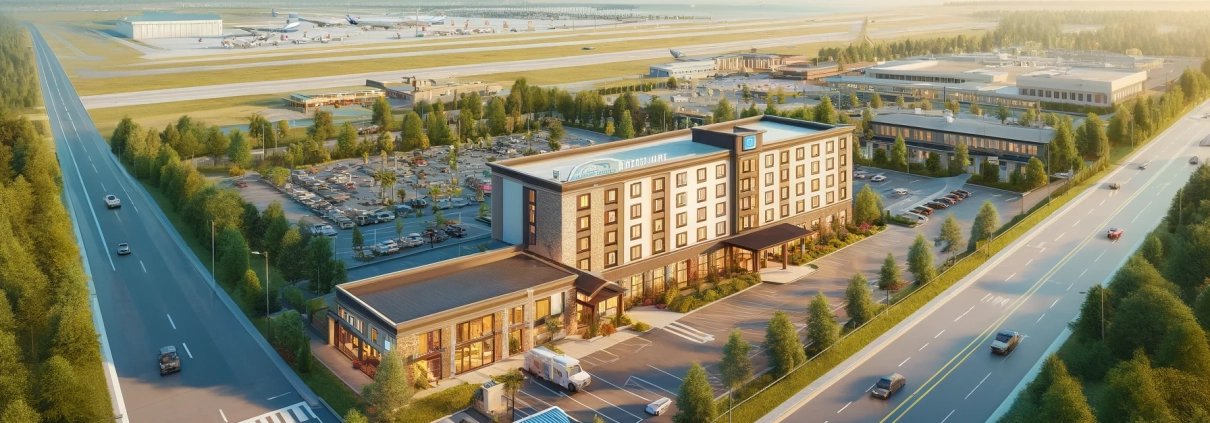Time Value of Money
The idea that money received today is worth more than the identical amount of money received in the future. This is because money received today can earn interest over time as well as increasing costs of goods and services over time due to inflation, thus making a dollar more valuable today than in the future. The time value of money is a core principle of finance and the foundation of various return and valuation metrics used in real estate (e.g. PV and IRR).
For example: $100 received today, when grown by 2% per annum, becomes $110.41 in five years. Thus, $100 received in five years is worth less than $100 received today.
Putting ‘Time Value of Money’ in Context
Scenario Overview
MetroCap Real Estate Partners, a real estate investment firm specializing in value-add strategies, has recently acquired Gateway Airport Inn, a limited-service hotel located near a bustling airport in the Southeastern United States. The property features 120 rooms, a small conference area, and a complimentary shuttle service to the airport. The purchase price for Gateway Airport Inn was $8 million.
Financial Context
MetroCap plans to implement a series of improvements aimed at enhancing the guest experience and operational efficiency. These improvements include upgrading room furnishings, enhancing Wi-Fi systems, and remodeling the lobby and conference areas. The total cost of these improvements is estimated at $1.2 million. MetroCap projects these enhancements will increase the hotel’s annual net operating income (NOI) from the current $600,000 to $850,000 within three years.
Time Value of Money Analysis
To capitalize the acquisition and subsequent improvements, MetroCap put together a capital stack consisting of equity and debt, securing a $6 million mortgage at a 5% interest rate, amortized over 20 years. The firm also raised an initial equity investment of $3.2 million (including improvement costs), with its LP equity partner providing 90% of the required equity ($2.88M).
MetroCap evaluates the investment’s future value using the Time Value of Money principle, projecting the hotel’s value based on its improved NOI and considering the potential sale in five years. Assuming a cap rate of 7%, the projected future value of the hotel would be approximately:
- Future Value = NOI / Cap Rate = 850,000 / 0.07 = $12,142,857
Comparing the future value to the current value calculated from the pre-improvement NOI:
- Current Value = 600,000 / 0.07 = $8,571,429
Thus, the expected increase in property value is $3,571,428 over five years.
Return on Investment
The total gain from the property, considering both the increase in value and the accumulated NOI over five years, minus the cost of improvements and debt servicing, illustrates the core principle of the Time Value of Money: the strategic use of current funds to generate higher future returns. The compounded annual growth rate (CAGR) and internal rate of return (IRR) are calculated to assess the profitability and efficiency of the investment over time, ensuring MetroCap’s decision aligns with its value-add strategy and financial goals.
Conclusion
This hypothetical scenario demonstrates how MetroCap Real Estate Partners effectively uses the Time Value of Money principle to justify its investment strategy, projecting significant returns through well-planned improvements and strategic financial management. The scenario showcases the increased worth of immediate proactive investment against future financial benefits, a fundamental concept in both general finance and specific real estate investment contexts.
This example is hypothetical and for illustrative purposes only. The numbers and context have been crafted to demonstrate the Time Value of Money within a real estate investment scenario.
Click here to get this CRE Glossary in an eBook (PDF) format.

